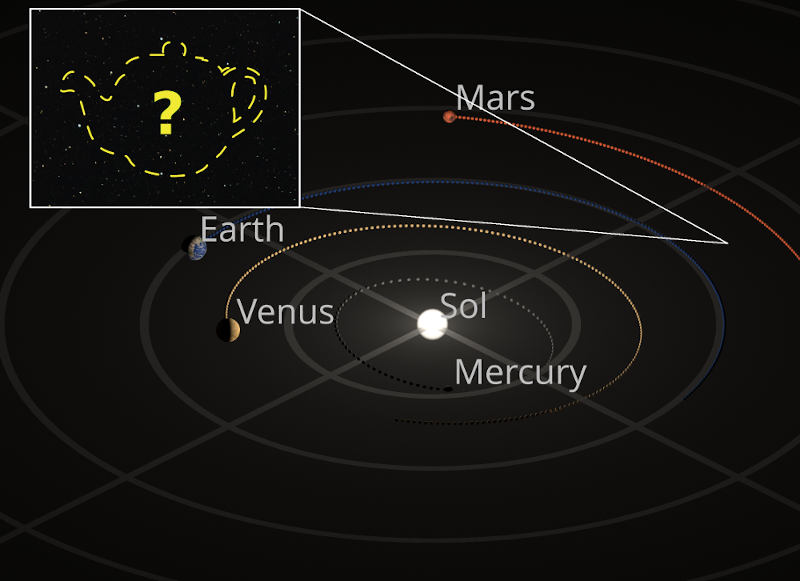Appeal to Ignorance - Definition and Examples
Contents
Appeal to Ignorance comes from argumentum ad ignorantiam, which is a Latin word that literally translates as “Argument from ignorance.”
This is the logical fallacy that a statement or belief is false simply because it has not been proven true or, conversely, true because it has not been proven false. This is a variation of “innocent until proven guilty” that resonates so well in America because it is what American criminal justice system is based upon. However, in logic, neither side has the disproportionate burden of proof; both sides must prove their own conclusions.
The model of the statement could look like
If P were true, then I would know it; in fact, I do not know it; therefore, P cannot be true.
If Q were false, then I would know it; in fact, I do not know it; therefore, Q cannot be false.
Examples of an Appeal to Ignorance
Since no evidence has been collected of UFOs, then they must not exist.
Other examples:
Scientists don’t know exactly what happened in the Big Bang, so it must not be true.
There must be intelligent life on other planets: No one has proven there isn’t.
There isn’t any intelligent life on other planets: No one has proven there is.
Both claims about life on other planets assume that the lack of evidence for (or against) a claim is good reason to believe that the claim is true (or false). Ignorance - in the sense of a lack of knowledge - features as part of the proof of the conclusion. But in general, the mere fact that a claim has not yet been proven is not enough reason to think that claim is false.
However, are there some legit Non-fallacious Appeals to Ignorance - one of them is referenced above - “innocent until proven guilty”, and another is when qualified researchers have used well-designed methods to search for something for a long time, without success. Of course, this unachieved result can prove non-existence only if the thing itself is discoverable by such a method.
About Burden of Proof
The burden of proof (Latin: onus probandi, shortened from Onus probandi incumbit ei qui dicit, non ei qui negat) is the obligation on a party in a dispute to provide a sufficient warrant for its position. While certain types of arguments, such as logical syllogisms, require mathematical or strictly logical proofs, the standard for evidence to meet the burden of proof is usually determined by context and community standards and conventions.
The philosophical debate can devolve into arguing about who has the burden of proof about a particular claim. This has been described as “burden tennis” or the “onus game.”
The burden of proof is a legal and philosophical concept with differences in each domain. In everyday debate, the burden of proof typically lies with the person making a claim, but it can also lie with the person denying a well-established fact or theory.
There could be different points of view on shifting the burden of proof in law and in statistics, but in philosophy and logic - when in a discussion one party makes a claim that the other disputes, the one who makes a claim typically has a burden of proof to justify or substantiate that claim especially when it challenges a perceived status quo.
Quality of proof
Hitchens’s razor:
What may be asserted without evidence may be dismissed without evidence.
And Sagan standard:
Extraordinary claims require extraordinary evidence.
Russel’s teapot is an example of an Appeal to Ignorance
One way in which one would attempt to shift the burden of proof is by committing a logical fallacy known as the argument from ignorance. The logic of Russel’s teapot example is based on the very close concept of Shifting the burden of proof.

The short description is from the article Russel wrote in 1958:
Nobody can prove that there is not between the Earth and Mars a china teapot revolving in an elliptical orbit, but nobody thinks this sufficiently likely to be taken into account in practice.
The more extended version is from the previous:
Many orthodox people speak as though it were the business of skeptics to disprove received dogmas rather than of dogmatists to prove them. This is, of course, a mistake. If I were to suggest that between the Earth and Mars there is a china teapot revolving about the sun in an elliptical orbit, nobody would be able to disprove my assertion provided I were careful to add that the teapot is too small to be revealed even by our most powerful telescopes. But if I were to go on to say that, since my assertion cannot be disproved, it is intolerable presumption on the part of human reason to doubt it, I should rightly be thought to be talking nonsense. If, however, the existence of such a teapot were affirmed in ancient books, taught as the sacred truth every Sunday, and instilled into the minds of children at school, hesitation to believe in its existence would become a mark of eccentricity and entitle the doubter to the attention of the psychiatrist in an enlightened age or of the Inquisitor in an earlier time.